A complete worry-free guide to buying your new home
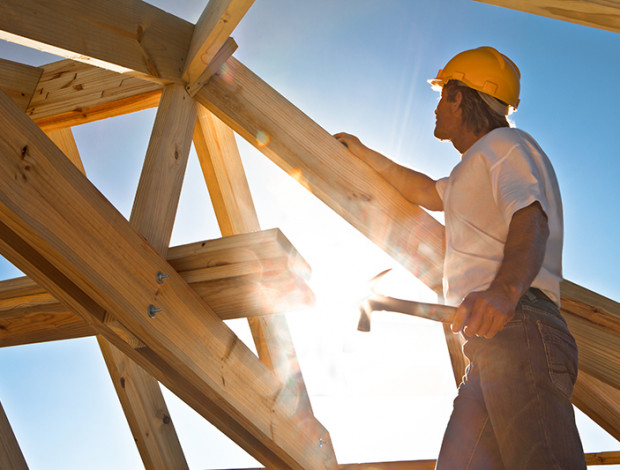
Buying a home or condo is undoubtedly one of the most stressful steps in one's life. At GuideHabitation.ca, we have spent the last several years observing this purchase process from both sides of the transaction. One thing is certain: buyers are fearful and skittish. They're overwhelmed with information, without necessarily being assured that their sources are credible. They wind up feeling alone because, in the end, the final decision is in the hands of the person signing the contract.
To help you make this huge decision, we have created a detailed buyers' guide that details every step of the process. Based on articles, testimony from real buyers and expert advice, this guide will prove to be a priceless starting point in your journey towards purchasing a new home.
We found that buying a new home was almost the same price, if not cheaper, than a house that had already been lived in. We figured we'd want to start our life together in something new, that we could personalize in our image.
- Ericka T.
1. Why buy new?
When the time comes to purchase a home, a fundamental question exists: new or not?
We will attempt to present the advantages and disadvantages of new homes, even if we're quite obviously tooting our own horn!
Amongst the advantages of buying new, we should point out that new homes offer the following:
- a home that is often under warranty
- a home that is up to modern quality standards, particularly in terms of soundproofing
- the assurance that renovation will not be necessary as there will be no older flaws to correct
- advantageous home buyers' programs
- more energy-efficient design
- the possibility to personalize details of your dwelling
- new neighborhoods waiting to be discovered
And the drawbacks? Of course, not everything is perfect in the world of new home construction. Some risks include:
- poor construction quality
- delivery delays
According to a report by journalist Benoît Giasson broadcast as part of the show La facture in November 2015, there is a risk of fraud and malfeasance during the construction of a residential building. A lack of surveillance during each step of construction is the cause. Thankfully, the situation is different for new residential buildings of four superimposed units or less, as well as for individual, row or semi-detached homes. Since January 2015, inspectors of the Garantie de construction résidentielle (GCR) have been doing more surveillance on construction sites for these types of projects. Other warranties also require serious inspections. It should also be noted that the market is filled with trustworthy builders who have proved time and time again that their reputation is deserved.
The potential of eco-friendly homes
Does buying a home that runs on passive solar energy or that is LEED certified automatically give it a higher resale value?
According to Écohabitation, the reseale of homes certified by an independent organism such as Leed or Novoclimat is becoming increasingly easier and more popular in North America. Some promoters like Montreal's Knightsbridge only build LEED-certified condos. The business' co-founder, Charles-Antoine Gosselin, confirms that these dwellings have a longer shelf life and offer better resale value than units without the certification.
This affirmation is confirmed by Adèle Breton, the author of a masters' thesis about certified eco-friendly homes that was submitted to the University of Sherbrooke in 2013. In her investigation, she found that certified homes stay on the market for a shorter period and sell for a higher premium than homes without the certification. The same applies to condo units. According to some American statistics on the certified home market, homes certified under the Built Green, Energy Star or LEED programs in Seattle sold for 9% more per square foot than homes without certificatio. They also sold much faster (24% faster).
2. When is the best time to purchase? Before, during or after construction?
The purchase of a new dwelling can be done at several steps of the process: before, during or after construction. But each of these steps is associated to conditions and elements that must be considered, not to mention the question of timing. Are you in a hurry? Do you plan to move by next summer?
2.1 Buying before construction
According to Jean-Noël Lemire, vice president of sales at Samcon, buying before construction allows you to save at least 5%. The discount increases considerably if the promoter is looking to sell units quickly in order to hit the target of sold units (generally 50 to 60%, depending on the situation) required by financial institutions to give the financing required to begin construction. That makes it one of the best moments to negotiate the price.
When purchasing before construction, the buyer must be conscious that they are buying a property on paper. The sales representative can, of course, provide pictures on which the future home's interiors and exteriors are simulated as well as 3D models, but it remains fairly abstract. The finished product can and will differ from these images.
If the project includes model units, it will undeniably be easier to anticipate the final product and get a sense of the materials to be used. Furthermore, real estate projects in phases as well as continuous home construction projects sometimes make it possible to visit existing properties that will be identical to the proposed purchase.
When buying before construction, it is imperative to read the preliminary contract and the note accompanying it (if a condo is being purchased) with great care, as buyers sometimes find a great discrepancy between what is written and reality. It is worth noting that modifications to a contract can be requested before it is signed.
Technical specifications, construction notice
When purchasing on plan, the promoter gives the buyer the list of technical specifications, which gives a written description of the work to be done. It describes, amongst other things, the different building materials that the builder is committing to using. It settles the general requirements as well as all the productions, equipment, procedures, acceptable execution norms, etc. Its range and complexity vary from one project to the next, ranging from a simple, one-page itemized list to a series of documents. These specifications are very important as a legal document as they describe the responsibilities of each party as well as the quality of execution of the work and the related materials. Buyers can also request specifications when purchasing a new home that has already been built. This allows the buyer to verify the material that will be used (or have already been used) for the outside of the building or to soundproof the walls and ceiling as well as the level of soundproofing that has been aimed for or obtained.
A well-informed buyer should ask the sales representative questions about the difference between the square footage written into the contract and the actual square footage available upon delivery. Many promoters sell units by indicating the gross square footage, an amount that includes the thickness of the walls as well as the square footage of closets and sometimes even balconies. The living space once construction is over is clearly less. In order to avoid such deception, we recommend that buyers request that both the gross and net square footage be written into the contract. For more information on gross vs net square footage, read this article.
In the case of dwellings delivered fully equipped (with kitchen and bathroom cupboards, counters, sinks, faucets, etc.), the materials used and the brands for the plumbing supplies should be clearly indicated on the contract. If materials or other equipments needs to be replaced during construction (in the event of stock shortage, for example), it is important the buyer be notified. If the change is major enough to require a change to the plan, for example, the buyer will have the opportunity to depart the project entirely and take back their deposit. On the other hand, if the element is minor, it will be replaced by an equivalent product. This was confirmed to use by a reputed downtown Montreal promoter who chose not to be identified. "The goal is is that discontinued materials or products be replaced by something equivalent or better. The validity of the replacement production should be determined by the design director and the sales director," she explains. "If these two come to the conclusion that the equivalent is not up to par, customers are informed and invited to make another selection. If both parties can't agree on a proper replacement, our approach is to offer to cancel the contract outright and give a full reimbursement of deposits, even if the contract mentions that the buyer should always accept the replacement.
Buying on plan represents a good chunk of transactions on the new home mark but it also comes with the risk of delays or unplanned changes. The savings incurred when purchasing on plan can be advantageous if trust is established between buyer and promoter. This trust is usually built after a few verifications (which we will look into later) and minimizes unpleasant surprises like fraud, malfeasance or bankruptcy. It will also absolve the buyer of having to watch over each step of the projet. This is, of course, a process that requires a lot of time - time that not everyone has.
We will be looking into all the precautions one should take and the questions to ask later on.
2.2 Buying during construction
When buying a home that's currently under construction, it's very rare that the buyer can request a change in the way the rooms are divided. Based on the builder's flexibility and the advancement of the project, the buyer can choose equipment (sinks, faucets, etc.) that's different from the ones that were originally advertised.
The advantage of buying towards the end of construction was that we could avoid bad surprises while also having the privilege of choosing certain things. For example, the planned kitchen was very modern, but I dreamt of a more pared-down and rustic kitchen in the "3 fois par jour" style. I got to have pretty much what I wanted, because I could change the materials!
- Tamila Z.
Whether you purchase your dwelling on plan or while it is being built, we recommend following the state of construction very closely. If your brother-in-law is in the construction business, time to give him a call!
The GCR warranty also calls for a pre-reception inspection. We'll touch on this aspect later.
2.3 Buying after construction (in delivery)
One of the advantages of buying a house or condo that has just been built is that you will avoid living on a construction site, with incomplete (or non-existent) earthwork.
However, at this stage of the project, the buyer must accept the unit as-is. If they do not appreciate the equipment, the color or the layout chosen by the builder, any and all desired modifications must be taken on by them only.
In condo projects, buyers can wait for the very end of the process to purchase one of the last units and therefore save a considerable (sometimes more than 10%) amount on the total price. Remaining units are sometimes liquidated in order for the promoter to amass enough capital to move on to the next project.
Summary of purchase advantages based on construction stages
|
Stage |
Avantages |
|
On plan |
Lower prices More model choices |
|
In construction |
A better understanding of delivery delays Easier-to-gauge quality Changes may still be possible |
|
In delivery |
Deals possible Construction done |
3. Making a choice: the comparison stage
This step generally begins with a budget and a desired neighborhood, or at the very least an idea of what services you want to be close to: a school for the children, a place of work, a large park... You can even use social media to explore neighborhoods virtually! You can also consider becoming interested in the investment potential of neighborhoods, since certain neighborhoods are more likely to increase in value than others in upcoming years. Then, you have to look at the specifics of the dwelling. Bigger or smaller building? How many storeys? What services are nearby? Can you access a backyard?
A few resources available in the Advice section of GuideHabitation.ca
- Detailled comparison chart
- Buy a new condo and save
- What can I buy for $250,000?
Thanks to the GuideHabitation.ca portal, you can compare new condo and new home projects currently on offer.
Should I purchase a parking space?
In a big city like Montreal, having a parking space wuth a condo unit is considered an extra that has to be bought. An investigation led by Jobboom in 2014 showed that the denser the neighborhood (and thus, the harder it is to find street parking), the more a buyer will have to spend to have their own parking space. At the time of the investigation, a spot in Ahuntsic was going for an average of $30,000, while on the Plateau they went for 40,000 to 45,000 dollars. In Old Montreal and downtown, the prices were higher still, ranging from 40,000 to 50,000 and even 60,000 dollars. In Montreal's central neighborhoods, parking is often indoors, which is another factor that brings prices up.
No matter the price that the buyer pays, it is often to their advantage to have a parking space as it makes resale easier. Even if, at some point, the owner gets rid of their own car, they will still be able to rent the parking space out easily.
The situation is different in places like Saint-Jérôme or Sherbrooke where parking is generally included in the sales price. More often than not, these parking spaces are exterior, because the land in places like that is worth less than in Montreal, for example.
4. From the virtual to the real
Time to get off the computer and get down to brass tacks! During a discussion group organized by GuideHabitation.ca, many potential homebuyers mentioned that they were often disappointed when comparing the pictures featured online with the reality of the project. Don't spend too much time behind the screen!
4.1 Questions to ask the sales office
Before getting to the sales office, you should prepare a list of questions, or arrive with a printed version of our comparative graph in hand!
For example, it'S a good idea to ask the sales representative the percentage of units that have sold thus far. If only 30% of units are sold (reminder that financial institutions require a minimum of 50% or even 60% before financing the beginning of construction), that often means there could be a lengthy delay before construction can begin. It'll be even longer before the buyer can move into their unit. The precentage of units sold is generally found on the promoter's website. Many promoters also keep a tally of which units are still available for most of their projects.
When does work start?
More specifically, you should ask if the builder has already obtained the permit from the city. "People often forget to ask this question and are disappointed to learn that the project's delivery date is in a year!", says the sales director of a project in Griffintown.
Because of administrative or approval minutiae that is late to come from the Conseil consultatif d'urbanisme (CCU), it is common that permits are handed to the promoter with some delay.
The documents presented by the promoter must be clear, detailed and free of mistakes. Is it easy to obtain information from them? This should tell you a lot about the promoter or builder's level of professionalism. Is the staff in the sales office able to offer precise answers to the question you ask? The competence of those employees is important in order to establish trust.
For more questions you should ask, read this article.
4.2 Don't sign too fast
You should never sign a purchase agreement on your first visit, unless you are truly blown away by a property in a neighboorhood that you know will soon be completely out of your price range. These tend to sell like hotcakes, so don't hesitate to pounce on one if you already know what you want!
The fact remains that you must take the time to ask all the necessary questions. When you purchase a unit on plan, don't simply take their word for it. For example, a sales representative could tell you that the city is planning to put in a park close to your home. The word planning is rather vague and in need of some precision. How long before the park is built? Do your own sleuthing if possible.
It's also important to take the time to be as informed as possible about the builder.
5. Verifications and warranties
Many verifications - some formal, some less so - are to be considered before signing. Here are a few questions to ask yourself.
5.1 Questions around the promoter/builder
How long has the builder or promoter been in business? How many projects have they successfully completed? Can you go and visit with them in order to get more info from previous owners about the quality of building and of post-sale customer service? To find out, use the Société québecoise d'information juridique's website at http://jugements.qc.ca
Have they had any complaints through the Office de la protection du consommateur? That can be verified through http://opc.gouv.qc.ca
Is the builder registered with the Régie du bâtiment du Québec (RBQ)? All builders must have an RBQ license. You can verify that through the register.
I made a few calls to get some information on the builder. It's primordial to me that I am reassured about the builder and promoter's good reputatuion. A relationship of trust must be established.
- Charles-Étienne, new condo buyer
5.2 Understanding warranties
The GCR
For buildings registered before January 1st, 2015, two warranty plans are applicable: Abritat and the Garantie des maisons neuves, both managed by the APCHQ, and of Garantie Qualité Habitation, managed by the Association de construction du Québec (ACQ). Since January 1st, 2015, only the GCR applies to the following types of properties: isolated single-family homes, row or semi-detached homes, undivided multi-family with two to five units (duplexes, triplexes, intergenerational homes, etc.) and divided co-properties with four separate, superimposed units or less.
The GCR offers more extended coverage than previous warranty plans. For example, the max coverage for a single family home moves from $260,000 under the old regime to $300,000 under the GCR. The maxmimum amount of guaranteed deposits moves from $39,000 to $50,000.
Inspections at several stages of construction have also been reinforced. Their frequency depends on the rating that the promoters have been granted. The better the rating, the more infrequent the inspections will be. Thus, some entrepreneurs may be inspected for 100% of their construction and, if the quality of their work does not improve, their license could be taken away.
Any promoter who builds dwellings covered by the GCR warranty must obligatorily register with the GCR and be accreditation or in the process of accreditation in order to offer the warranty. "If they don't do it, they could be sued," says Guillaume Houle, communications manager at the GCR. The buyer can check the register of GCR-accredited builders to ensure that their home will be built by an accredited builder.
Other warranty plans (considered optional)
For buildings held in divided co-property with more than four superimposed units (a condo in a tower, for example) that are therefore not covered by the GCR, there are some optional plans. These are the Garantie Qualité Habitation offered by the Association de construction du Québec (ACQ), the Garantie des immeubles résidentiels (GIR) offered by the APCHQ and the Garantie Habitation des Maîtres Bâtisseurs (GHMB). Each promoter whose projects do not fall under the GCR has the choice to employ one of these plans or not.
Buying without warranty
It can happen that entire condo towers are built and sold without warranty. Are the buyers still legally protected? Yes, because the civil code already protects buyers against malfeasance and hidden defects.
6. The art of negociation
Understand that in a buyer or seller's market, there's always space to negotiate. But how does one negotiate efficiently?
The extent of your negotiating power depends on the neighborhood. The more projects in a specific neighborhood, the more latitude you will have to negotiate. The Rosemont neighborhood, for example, offers more projects than the Plateau Mont-Royal, but the demand is higher in the latter. You will therefore be able to negotiate more in Rosemont.
That having been said, if the price of the dwelling you're interested in is 295 000 but the ceiling of your budget is 275 000, there's nothing to stop you from making an offer anyway! If you're pre-approved and offer a generous deposit, you could influence the sales representative. Worst case scenario - they will make you an interesting counter-offer. If the offer doesn't vary much, you could also focus on the included elements. This would allow you to make interesting savings while also satisfying the representative. But be careful: the buyer should stipulate that their offer is valid for 24 hours only, to avoid slowing down the process and miss opportunities elsewhere.
Other points to consider to strengthen your negotiation:
- The faster you're able to move in and take possession of the unit, the more the sales representative will be willing to make you a price.
- You have more chances of a fruitful negotiation if the condo is already built and empty. As the contractor has already spent more money at this stage, they will be more motivatived to sell.
- The majority of contractors must pre-sell between 40 and 50% of their units before obtaining the financing required to begin construction. Ask how many units have already been sold and know that if you are approaching the abovementioned range, the contractor will be more tempted to make a price as it will help them reach their quota faster.
- At the end of a large project, it's possible to get a sizeable discounts on unsold units. These are likely to be costly units, but at a very interesting discount - think 10 or 15% off a penthouse with a $40,000 parking space thrown in.
6.1 Extras
According to Jason Lemire, real estate broker and president of the Majordome agency, buyers of a $300,000 home usually add between $5000 and $20,000 worth of extra to satisfy their desires. These generally apply to terraces, storage spaces and high-end finishings. The common spaces that the buyers use the most (the kitchen and the bathroom, generally speaking) are also the ones the buyer seeks to personalize. If the purchase is made on plan, this personalization will more often be done by the builder, which facilitates negotiation.
As a matter of fact, builders sometimes prefer offering extras while keeping the sales price the same. For example: a bathtub as well as a shower in the bathroom, a bike storage space in the garage, an outlet for an electric car, a quartz countertop in the kitchen, the delivery and installation of the washer and dryer, etc. The advantage is that these extras bring up the sales price. You must obviously make sure that these negotiated extras are included in the contract.
You can also try to be creative in your demands when it comes to extras. For example, the majority of units in a co-ownership have a liveable surface area ranging between 600 and 1200 square feet. In a space of 1000 square feet or more, there is often a room where it's possible to store small objects like cans, toilet papers, sports articles, etc. You may also need a storage space in the underground parking lot where you can store items that aren't used that often like winter tires. This space could be offered for an extra cost. If that's the case, it's worthwhile to negotiate with the builder in order to obtain one, because a living unit of 1000 square feet or less can soon run out of space.
7. "Sign here"
First of all, what are you signing? According to the Civil code, any real estate transaction must be preceded a preliminary contract. It must be signed between the builder and the buyer for any purchase of a new or to-be-built home. By signing this contract, the buyer confirms their intention to purchase the property at an agreed-upon price. The builder, on the other hand, agrees to build the property according to what is written in the contract and to transfer the property titles to them.
The preliminary contract must contain the following elements:
- the name and address of the intended buyer as well as the seller's
- the adress and lot number of the property as well as its dimensions and the lot's
- the property's delivery date
- the established sales price as well as payment terms and conditions
- a description of the work to be done by the sales representative
- a description of the buyer and seller's obligations
- the contract's acceptance period
- signatures from both parties
If you purchase a new condo, an undivided unit in a building featuring at least 10 units or any residence that comprises a gathering 10 units or more with common areas, it is obligatory that the preliminary contract be accompanied with an information note. This note should contain the names of the engineers, architects and other professionals involved in the project's construction and allows buyers to make an informed transaction. It also allows you to get an idea of the monthly costs for common charges. In short, they should be taken seriously!
For building with nine or less units, lawyer Yves Joli-Coeur, who specializes in co-properties, suggests that you ask the promoter to provide the equivalent information. This document is essential in allowing the buyer to make an informed decision (article 1788 of the Civil code outlines all of the detail that must be contained in the note). This includes the predicted budget. This budget consists of the current state of debt, of income, of outstanding balances, out-of-pocket expenses and common costs.
Some buyers can be confused by the place the notary can and should take in the purchase of a new home. It's important to note that many builders have their own notary. It's important to get that information beforehand, as they may ask that the transaction be performed by that notary in order to avoid delay, surprises and unnecessary fees. Their notary is already acquainted with the residential sector or project you plan to acquire a property from as well as the special rules that may apply. This means leass research and a lot of time saved as far as the builder is concerned. Certain builders will spring for part, if not all, of the notary fees, which generally hover between 1000 and 1300 dollars.
Whatever the situation, the notary has a professional obligation to remain impartial, making them the ideal legal expert for both parties, contrary to a lawyer, who is hired to represent a single party. The notary is the one given the task of keeping all parties' best interests in mind, no matter which of the parties is paying their fee.
You can also explore the issue of delivery dates with the promoter (which we'll touch upon a later) and negotiate clauses to add to the preliminary contract in order to have a better idea of the compensation you're entitled to should a delay in delivery occur.
7.1 Economic considerations
Upon signing, the buyer enters the financial portion of the operation.
The deposit. In the world of new homes, the deposit varies based on the type of construction. If the home is made of wood and brick, the deposit is generally fixed at 5% of the sales price. For a concrete construction, the developers generally ask for a 10% deposits, as their costs are higher. This type of construction can even reach as high as 20%. If the buyer is purchasing through a broker, the broker must hastily place the deposit in a trust held either by the agency or by the broker themselves.
A well-known downtown Montreal promoter confirms that, depending on the size and schedule of aproject, the promoter's financing interest costs are an important factor in determining the cost of each unit. The structure of a deposit (their amount and the dates at which they are handed over) will have an impact on the cost of financing. "Each project, depending on its nature and its financial structure, will have its own deposit objectives. The effect of competition will also have an impact on the deposit amounts required. As buyers prefer giving over as little deposit as possible, the required deposit amount sometimes becomes a sales incentive," they explain.
The amount of the deposit should usually stay in this account until it is required by the notary to complete the purchase (see insert).
Deposits in trust accounts: watch out for blind trust!
People often think that money they've given to a notary as a deposit is protected. However, they are often misunderstanding the obligations that tie in to the deposit. Most of the time, the deposit is used as a financial lever by developers totally legally, based on clauses that are submitted in the initial contract.
For example, a contract can anticipate that the promoter can remove their deposit in order to start work when half of the units or sold, or when the construction reaches a certain status.
Note: warranties protect deposits.
The professional association of Quebec notaries (APNQ) also recommends that buyers make any down payments using certified cheques to the order of their notary, through a trust.
Sales tax. Sales tax represents a significant amount of money during the purchase. With TPS at 5% and TVQ at 9,975%, you're looking at an additional 15% to pay at once. Thankfully, both branches of government offer a partial reimbursement of these taxes (36% for the TPS and 50% for TVQ) under certain conditions. This partial reimbursement is possible if the dwelling is the owner's main residence and if it can be considered a single-family home, a row home, a semi-detached, a mobile home, a duplex, a condo or a house in which rooms are rented out on a short-term basis. Another condition: the purchase price must be lower than $450000 for the TPS reimbursement and inferior to $225000 for the TVQ reimbursement. For more information, use our calculator tool and consult our detailed article on taxes.
Home buyers' programs. Some programs help lower the cost of a new property. This reduction can be applied on the welcome tax, on the land tax during the first few years following the purchase (1 to 3 years), on the (all-inclusive) sale price, etc. For more information, read our in-depth article on home buyers' programs.
Of course, additional expenses (not all of which can be attributed to new homes), are also to be expected.
8. From signing to taking possession
8.1 Before construction
If the house or condominium was purchased on plan (before construction), this is when the waiting period begins - which can be both frustrating and exciting.
It's important to note that in construction, as in renovation, things are unlikely to happen faster than planned! Delays can pile up for a variety of reasons, such as:
- the promoter has not obtained enough financing to begin construction because of an insufficient amount of sold condo units (in the case of a tower)
- the city has not given out a construction permit or is asking for changes to the plans
- he builder is still waiting on materials
- a subcontractor is currently busy on another project
Good communication between the builder and their clients will allow these clients to know exactly what to expet and plan for before the apartment is ready for the move. As delays are common and sometimes rathger considerable, it's a good idea to have a Plan B: temporary lodging, parents, family, etc.
Financial compensation is generally planned in the event of delivery delays. When your unit is covered by the Garantie de construction résidentielle (GCR), you can put in a request for reimbursement for lodging, moving or storage fees. The reimbursement is limited to $6000; if the delay goes past that amount, you will be expected to make up the difference. If your unit is not covered by the GCR (e.g. a condo in a residential tower), the real esatte project could be protected by one of the warranty plans offered by the APCHQ, ACQ or Maîtres bâtisseurs. Make you read and understand each clause of this plan regarding delivery delays. Some preliminary contracts can include a financial compensation clause in case of a delay.
8.2 Visits during construction
Article 2117 of the Civil Code involves visiting construction sites. It reads as follows: "At any time during the construction or renovation of an immovable, the client, provided he does not interfere with the work, may examine the progress of the work, the quality of the materials used and of the work performed, and the statement of expenses incurred so far."
Personally, we found it necessary to visit several times during construction to make sure everything was going as planned. It reassured us and put more pressure on the builder.
-Dominique C.
If your unit is guaranteed by the GCR, inspection are also planned during construction. However, nothing is stopped you from also conducting your own inspection or even hiring a professional (technologist, lawyer or architect that's a member of their respective professional order as well as a building inspector that's a member of the building inspectors' association) in order to do checkups on top of those made by the GCR.
Those who desire may make a first visit once the carpentery, plumbing, electricity and heating steps are completed. That way, all the important work has already been completed and remains visible, making it easier to apply any necessary corrections. Having the construction plans in hand will prove to be useful: during every visit, make sure that all the elements present on the contract at signing as well any other discussed element that appears on the signed contract are present.
The completion stage is another good time to visit the site. You can split your visit into two, the first visit coming at the finishing stage for the walls and ceilings. It's important to examine if the installation of the gypsum board was done in a way that makes the juncture between boards invisible. It's also important to visit during the process of installing the wainscotting and plaster mouldings, if these are included. In this step, watch if all the finishing elements are well-integrated to the walls and ceilings.
8.3 Pre-reception inspection
This is the most common type of visit and, for most, the only visit. All buildings covered by the GCR must be inspected before reception - that's the law. For other warranties or projects without a warranty, this type of of inspection is optional but highly recommended. In both cases, the pre-reception list approved by the RBQ is used. This list covers all types of buildings.
This inspection is done alongside the builder. You can also hire a building professional out of pocket. According to GCR procedures, once the inspection is complete, you have three days to add elements to the list of work to be corrected or perfected if you have not yet moved in to your home.
It's important to inspect thoroughly and make sure that any problem has been solved by the builder, as it becomes much harder to do so once you've moved in, even under warranty. We were lucky, as we only had to fix the patio stairs; our neighbors had uneven tiling that was never fixed.
-Ericka T.
If you ask for corrections or modifications, you must send a copy of the modified list to your builder and to the GCR. According to GCR guidelines, you will have the possibility of making a claim if the builder does not fix the flaws or inherent defects indicated. This claim must be send to the builder and to the GCR within a reasonable delay following their discovery. The detailed claims procedure is indicated here.
The inspection must not be hasty. Some builders even accept that the buyer proceeds to a preliminary inspection with a building professional one or two days before the pre-reception inspection.
For the common areas of a divided property, the pre-reception inspection list (which is a list that is distinct from the inspection list for homes and private sections of a co-property) must be be completed with the condominium syndicate. The syndicate must be accompanied with a building professional (architect, engineer or technician) that is a practicing member of their professional order.
“Pre-occupancy”
You want to live in the apartment you intend to buy before having signed the sales act? In order to move in, you must sign an agreement with the promoter known as the interim occupancy agreement. This agreement generally considers that the buyer agrees to assume certain fees and costs and agrees to sign the sales act at the appropriate time.
This agreement must include several points: the rights of the promised buyer to occupy the unit while waiting for the sales act to be sign, acknowledgement by the occupant that the agreement does not constitute a transfer of the property act, ban on renting the unit during the provisional occupancy and the date at which the agreement ends, coinciding with the signing of the sales act.

9. Recourse... and cancellation?
For new constructions, the preliminary contract is what determines sales and cancellation conditions.
This contract allows for a delay of 10 days after the initial signature to divest yourself of the purchase. This clause - which is obligatory and cannot be renounced - is intended to protect the buyer. Be careful: the preliminary contact may plan for compensation to be associated with the cancellation, but the compensation cannot exceed 0.5% of the sales price.
In terms of possible recourse after the delivery of a unit, the GCR offers buyer protection in the event of a problem. The GCR allows buyers to make claims in many situations, so long as they respect a claims procedure:
- reimbursement of relocation, moving and storage fees
- reimbursement of down payments
- finalization of construction
- repairs to any flaws or defects
The claims procedure must nevertheless be followed.
The owners of buildings that aren't covered by the GCR also have recourse in case of a problem. However, if they aren't covered by an optional warranty, they will have to take the case to court, which can be costly. According to the Civil Code, builders, architects and engineers who directed or oversaw construction as well as subcontractors (for any worj they may have done) and agents/promoters, are responsible for any defect for a period of one year. For major defects, responsibility extends for a period of five years following the end of construction.
10. Here we go again
What if you felt like starting over? For some, purchasing a new home is a form of investing. Instead of purchasing RRSPs, some people find it more interesting to invest in real estate, which fluctuates less than the stock market or mutual funds.
10.1 The steps of resale
Resale before or during construction
According to real estate agents, this practice is in the realm of actual speculation, which is very rare. This can happen when a market is extremely favourable towards sales or in certain areas that are very sought-after (i.e. downtown Montreal) A condo unit can also be sold prior to occupation for reasons other than speculation. This was covered in the August 31st, 2016 issue of La Presse, which covered the Tour des Canadiens project. 144 units out of a total of 552 were on the resale market or offered as rentals even if the construction of the building was not complete. According to experts quoted in the piece, this phenomenon can be chalked up to the long period of time (nearly four years) between the presales period and the time at which buyers could take possession of their units. Changes occuring in the lives of the buyer could explain their desire to sell. Of course, some buyers also purchased with the intention of speculating by betting on the excellent location of this building in the heart of downtown Montreal.
Resale after construction
Selling real estate after construction can be very profitable for a buyer. If it also happens to be your main residence, you won't have to pay any taxtes on any profit you make. This profit, however, depends on the state of the market, which goes through high and low cycles.
CONCLUSION
Buying a home is one of the most important and stressful moments of one's life: being well-informed and well-supported definitely contributes to a good experience! Whether on the warranty, research or negotiation level, information is the key to purchase power! We invite you to consult the Guidehabitation.ca blog regularly; independent journalists are working hard to write in-depth articles and update existing ones. For any question surrounding the Buyers' Guide or any suggestion of a new article, don't hesitate to contact us!


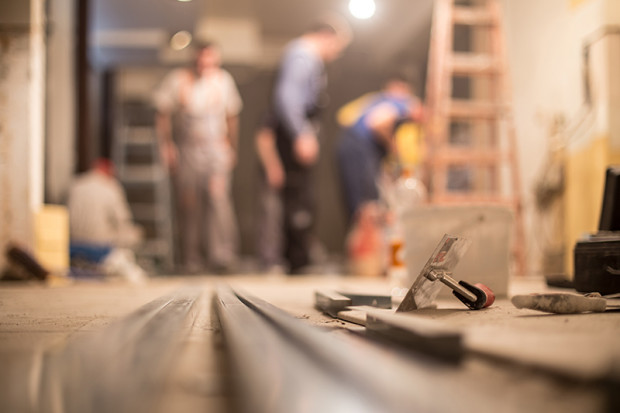
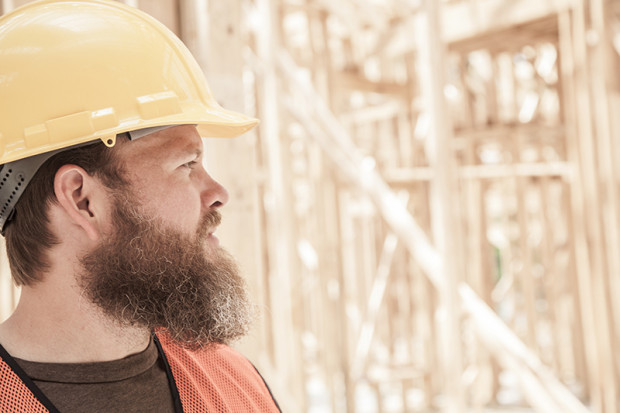
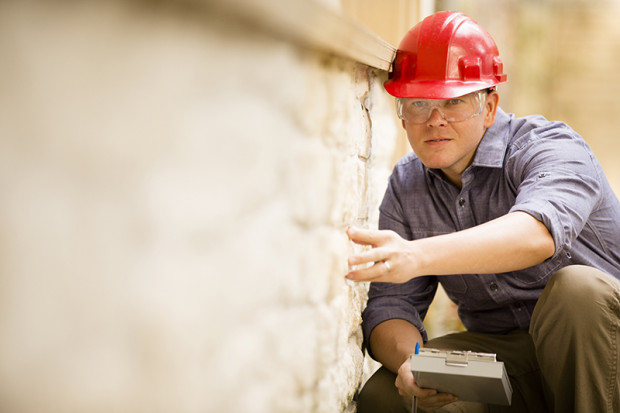
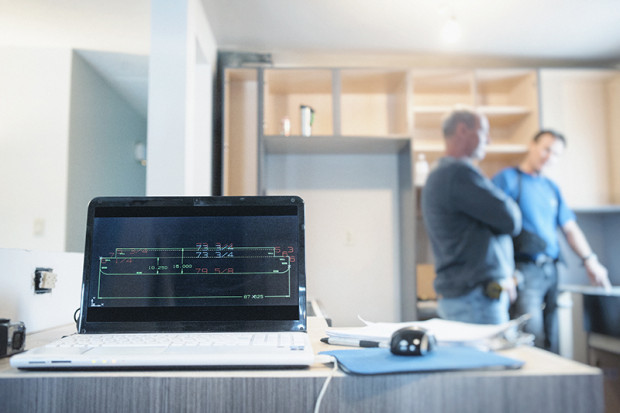
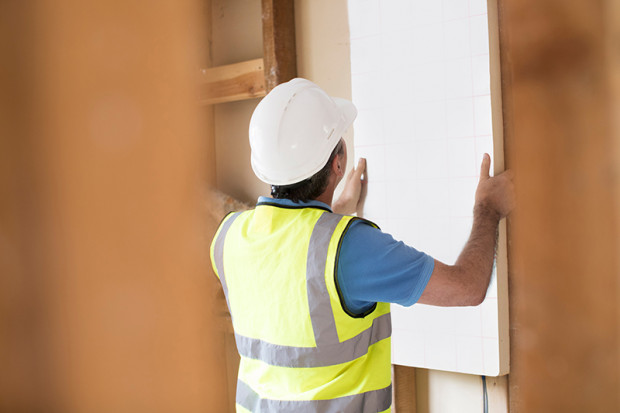
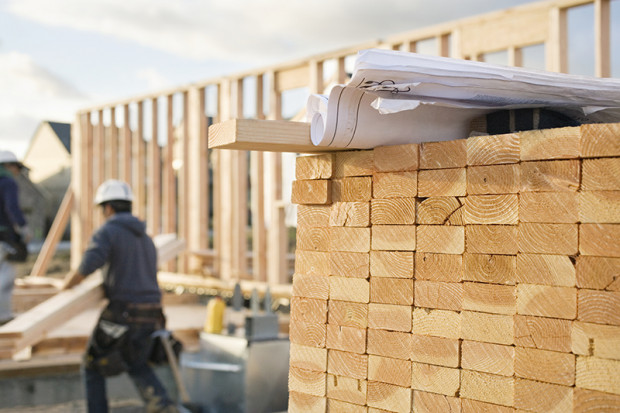



Stock images: Shutterstock
Related articles
Most popular articles